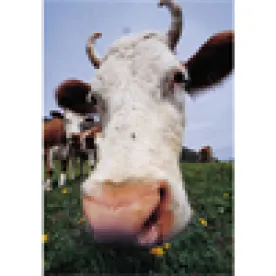Wilson Mutual Ins. Co. v. Falk, 2014 WI 136; Preisler v. General Casualty Ins. Co., 2014 WI 135
In Wilson Mutual Ins. Co. v. Falk, 2014 WI 136 and Preisler v. General Casualty Ins. Co., 2014 WI 135, the Wisconsin Supreme Court held that the absolute pollution exclusion applies to claims arising from overspreading cow manure and septage on farm fields. In those cases, the insurers issued policies including CGL coverage. The insureds in both cases were sued by neighbors who asserted claims based on overspreading of cow manure (Falk) and septage (Preisler). As a result, plaintiffs contend that their well water had become contaminated. The supreme court reinstated rulings by the trial court finding that cow manure and septage fall within the policies' respective definition of a pollutant.
With respect to application of the absolute pollution exclusion, the court first held that there was an "occurrence" that gave rise to coverage under the insuring agreements. The court reasoned that there was an accident resulting in bodily injury and property damage when excess cow manure and septage seeped into water supplies because the seepage was neither expected nor intended.
The court next held that the absolute pollution exclusion barred CGL coverage. In Preisler, for example, the court opined that "a reasonable insured would understand decomposing septage to be a contaminant when it seeps into a water supply" such as plaintiffs' wells. Noting that state and federal regulations apply to septage handling, the court further explained that the regulations supported the conclusion that the insureds should have been aware of the health risks connected with hauling, storing and applying septage.
In Falk, the court adopted a two part test for determining whether a reasonable insured would consider a substance to be a pollutant. First, a substance is a pollutant if it is "largely undesirable and not universally present in the context of the occurrence [for which] the insured seeks coverage." Second, a substance is a pollutant when "a reasonable insured would consider the substance causing the harm involved in the occurrence to be a pollutant." The court concluded that both elements were met here because cow manure in well water is undesirable, it is commonly understood to be harmful and it is not universally present in well water.
Lastly, in Falk, the court held that the insurer has an obligation to defend and indemnify its insured under a separate incidental coverage section. More specifically, the policy included coverage for "Damage to Property of Others," including indemnity of $500 per "occurrence." In this case, plaintiffs alleged that five separate wells were contaminated by cow manure; accordingly, the court held that there were five separate occurrences. The court explained that there was an occurrence "each time manure seeped into a unique well," citing an earlier decision in Plastics Engineering Co. v. Liberty Mutual Ins. Co., 2009 WI 13, 315 Wis. 2d 556, 759 N.W.2d 613. The court noted that the insurer's defense obligation will terminate if it settles.




 />i
/>i
